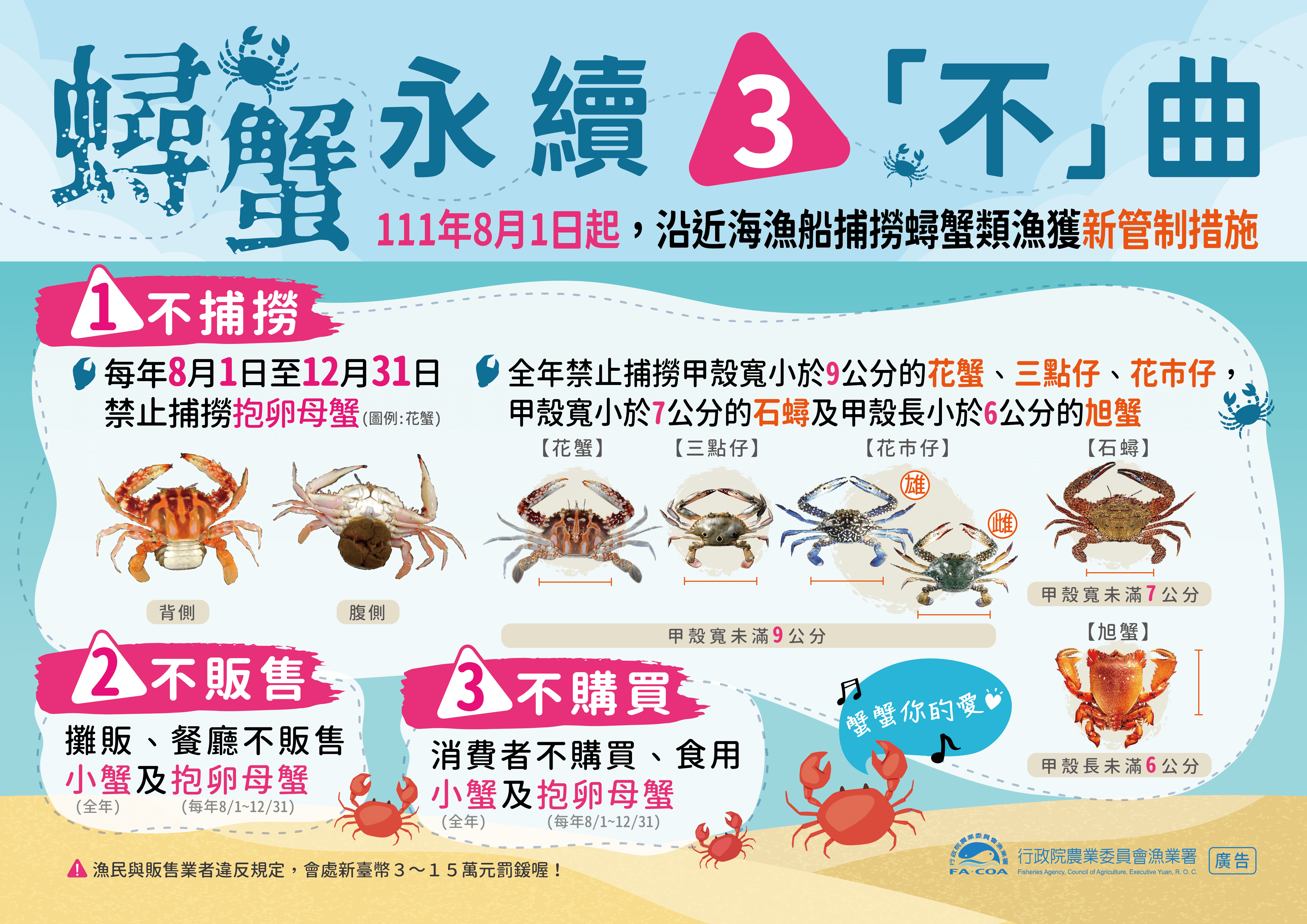EAST secures new protections for crabs in win for marine ecosystems
On July 6, Taiwan’s Fisheries Agency announced stronger protections for egg-bearing crabs as part of new controls for coastal crab fisheries. The new system will be implemented from August this year and aims to improve the sustainability of marine ecosystems and resources in Taiwan.
The Environment & Animal Society of Taiwan (EAST) worked hand-in-hand with other stakeholders to secure the upgraded protections.

Image credit: Fisheries Agency
Extending the catch ban
The updated regulation extends the catch ban period for egg-bearing crabs from three months to half a year to enable female crabs to spawn successfully within the breeding season. Going forward, fishing vessels will be prohibited from catching egg-bearing crabs from August 1 to December 31, and accidental catches must be released.
Upping the shell width threshold
In order to avoid catching juvenile crabs, the revision also ups the shell width threshold for catching crabs. The catch thresholds for crucifix crabs (Charybdis feriatus), red-spotted swimming crabs (Portunus sanguinolentus) and flower crabs (Portunus pelagicus) have been increased from 8 to 9 centimeters, while the threshold for the ridged swimming crab (Charybdis natator) has been increased from 6 to 7 centimeters.
Mandating landing declarations
In order to obtain accurate fishing statistics and facilitate scientific assessments of marine resources, crab fishing vessels will be required complete landing declarations and cooperate with official observers. Vessels must allow observers onboard to conduct scientific inspections and collect data to assess crab populations.
In addition, the Fisheries Agency will convene academics, fishers’ associations and conservation groups to form an advisory group to oversee the management of crab fishery resources. The advisory group will hold regular meetings to review control measures on a rolling basis and provide expert advice, seeking to promote sustainable resource management in the industry.
Strengthening enforcement
Throughout the consultation period, EAST repeatedly stressed that controls at the point of sale must be strengthened. In the future, the sale of female crabs carrying fertilized eggs and crabs with shell widths measuring less than 9 centimeters will also be banned during the catch ban. Vendors who violate the regulations can be fined up to NTD $150,000.
Protect mother crabs together
Starting August 1, please help us to protect our marine ecosystems. If you find vendors selling egg-bearing crabs, or crabs with shell widths less than 9 centimeters, please be sure to take photos and actively report the situation to the local fishery authority.
Please refuse to eat or purchase egg-bearing crabs and let our oceans continue to flourish!
Translated by Diana Chen










